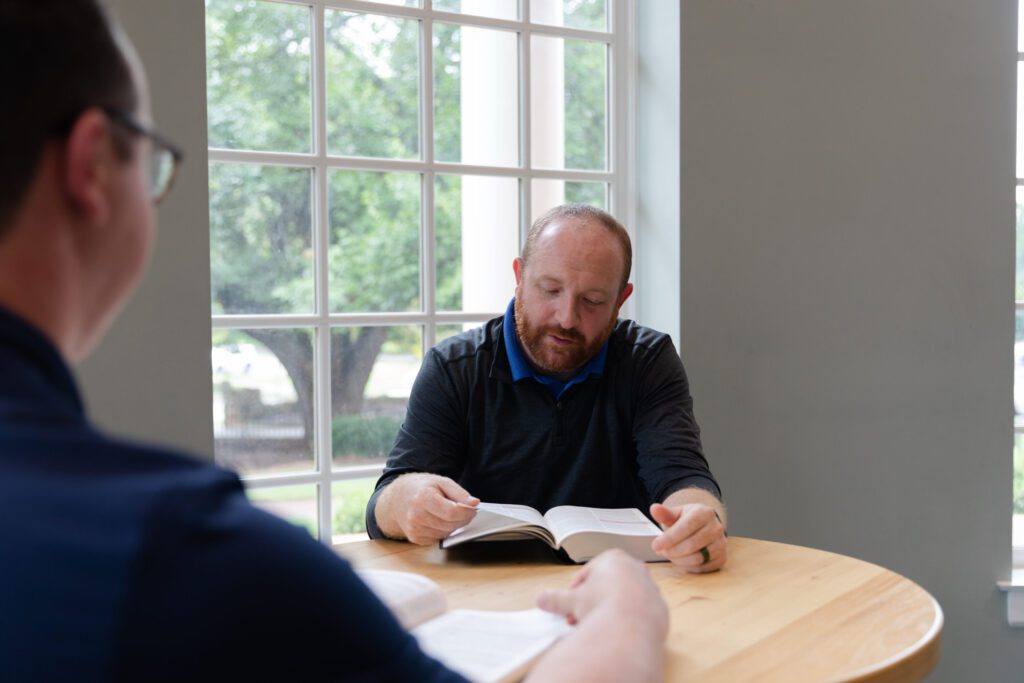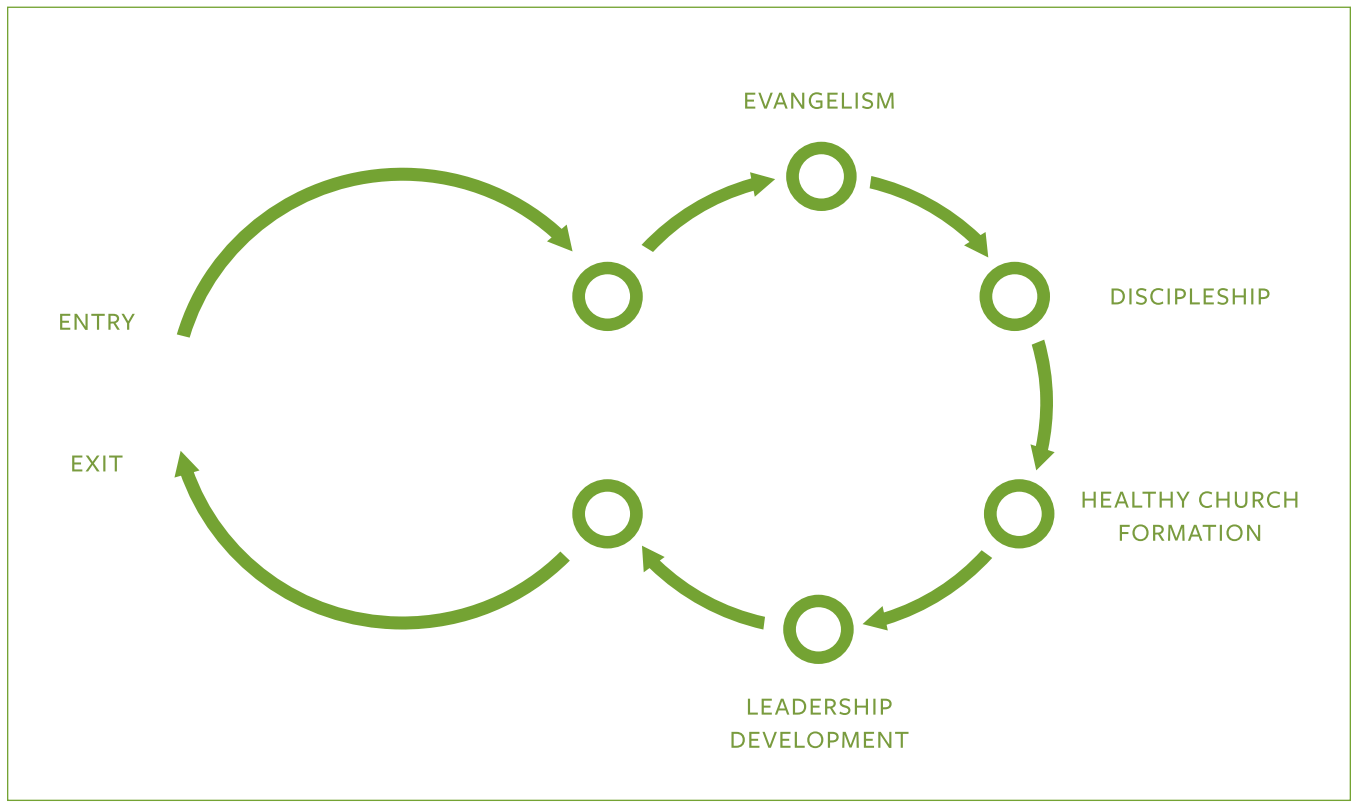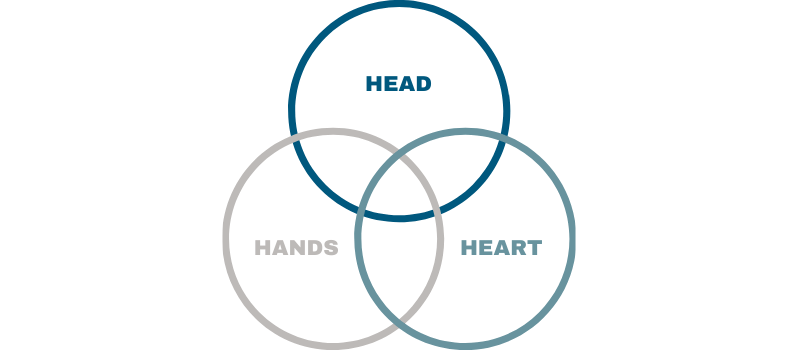
Instructional Guide
The goal of Pathways is the growth of the gospel. In the book of Acts, Luke makes it clear that this was his primary metric of success. Repeatedly, he references the spread of the gospel and the manner in which the Word increased and multiplied (Acts 6:7, 12:24, 13:49, 19:20).
For the gospel to grow to the ends of the earth, someone must take it there. The IMB’s Foundations document states it this way:
The heart of the mission God has given us is to be His witnesses (Acts 1:8), to proclaim repentance and forgiveness of sins in His name (Luke 24:47), and to make disciples of all nations and peoples on earth (Matthew 28:16–20). (Foundations, 23)
This cohort is designed to provide the competencies and spiritual formation necessary to serve faithfully as witnesses to the gospel in a cross-cultural setting among the least reached peoples and places.
In the 1950s, an educational theorist named Benjamin Bloom proposed a significant concept that completely changed the way we think about education and learning. If you’re an educator, you may be familiar with Bloom’s Taxonomy. As part of his theory, Bloom suggested that learning happens across three different but interconnected domains. The cognitive domain is probably the one most of us associate with learning, it’s all about the head. It’s knowledge and facts and concepts. But there were two more that Bloom said were just as important. The affective domain, as he called it, had to do with the heart. It was about emotions or affections. And finally, the behavioral domain was about the hands and feet. People learn by doing and experimenting, by action.
Transformative learning, the kind that changes a person, happens when all three of these domains are included in the learning process.
At its best, discipleship is transformative learning. It’s the kind of learning that changes someone’s life. Jesus was the master discipler, he engaged the head, heart, and hands of his followers in a way that transformed them into fully-formed disciples sent as witnesses.
Our cohort model attempts this same kind of transformative learning by not reducing the learning process to a list of books, videos, or classroom lectures. Instead, cohorts involve both classroom time, active cross-cultural missionary engagement throughout the month, and fellowship and worship with other cohort members. This back and forth between classroom time and practically engaged ministry creates an important feedback loop where students practice what they are learning with an opportunity to come back together and debrief their experiences together, providing opportunities for them to sharpen their abilities.
The Cohort Content
The Pathways cohort centers its content around the development of eight core competencies identified as indispensable in the life of a missionary. Six of these competencies are aspects of what the IMB calls the Core Missionary Task. The other two deal specifically with spiritual formation (abiding in Christ) and teaming with others for the mission.
The Core Missionary Task
In light of the full testimony of Scripture, we believe that the core missionary task has six components: entry, evangelism, disciple-making, healthy church formation, leadership development, and strategically planned exit. Because prayer is central to our strategy, it is not a separate component of the task, but rather is an essential element in every part. (Foundations, 75)
 The core missionary task serves as the course map for most of the cohort, and students will be equipped for specific competencies that prepare them to engage in each phase of the task from entry to exit. This will include preparation in discovery and cultural exegesis, cross-cultural communication and evangelism, disciple-making methods, church formation, and leadership development practices. Cohort members will learn concepts during class time and then practice those contexts in cross-cultural ministry throughout the month by developing their own engagement strategy among diaspora peoples here in Houston.
The core missionary task serves as the course map for most of the cohort, and students will be equipped for specific competencies that prepare them to engage in each phase of the task from entry to exit. This will include preparation in discovery and cultural exegesis, cross-cultural communication and evangelism, disciple-making methods, church formation, and leadership development practices. Cohort members will learn concepts during class time and then practice those contexts in cross-cultural ministry throughout the month by developing their own engagement strategy among diaspora peoples here in Houston.
Abiding and Teaming
In addition to the core missionary task, cohorts will take up two additional competencies that are crucial to success in an international missions context: abiding in Christ and teaming with others.
To make disciples cross-culturally, they must first be fully-formed disciples themselves. Missionary work is a spiritual endeavor and one that rises and falls on the work of the Holy Spirit first in the life of the missionary and then as an overflow of their own life into others. Abiding in Christ is of utmost importance to thriving in the long term on the field.
Likewise, missionaries do not do their work alone. The book of Acts provides a clear example of missionary teams being the fruitful model for spreading the gospel to the ends of the earth. The IMB relies on teams of missionaries across the world to engage unreached peoples and places. Anyone serving as field personnel with the IMB will become part of one of these teams. Living in another culture creates unique stress in the life of the missionary. Add to this stress the regular issues of communication and vision that exist on any team, and interpersonal conflict is inevitable. Knowing how to thrive in a team setting is essential to missionary health and success on the field.
Course Agenda
The Pathways cohort consists of two four-month semesters. Classes happen twice a month, with the expectation of engaging in cross-cultural missions throughout the week.
Semester 1 takes up the overall theme of personal disciple-making. In this semester, cohort members are challenged in their own spiritual formation. In addition, they learn about cultural exegesis and acquisition for beginning engagement, evangelism practices for gospel proclamation, and practices for discipling those they have evangelized.
Semester 1:
Complete Syllabus: View Online | Download PDF
- Abiding in Christ
- Entry
- Evangelism
- Discipleship
Semester 2 shifts to the focus toward communal disciple-making. In this semester, cohort members learn about turning the corner from individual disciple-making to planting churches from the harvest. In addition, they will be taught practices for developing leaders from those they’ve discipled and how to transition church ministry to the church itself. Finally, members will learn about working in missionary teams overseas and the dynamics of a team approach to cross-cultural ministry.
Semester 2:
Complete Syllabus: View Online | Download PDF
- Church Formation
- Leadership Development
- Exit (Partnering)
- Teaming
Developing an Advocacy Team
Each Pathways participant will be required to develop an advocacy team at the beginning of the first semester. An advocacy team is a vital piece of good missionary care and support. By requiring participants to work on this at the beginning of the process, they will be able to equip their advocacy team to provide support while they are being equipped to go. This ensures that they will have a team of people, mostly from within their own church, who hold the rope for them at home after they go. You can find an Advocacy Team Overview here.
Additional Reading
If you’re interested in further resources on missionary sending or the Pathways cohort process, check out the additional reading lists below to see books, courses, and other content for missionary development.
- Books & Articles
- Online Videos & Courses

